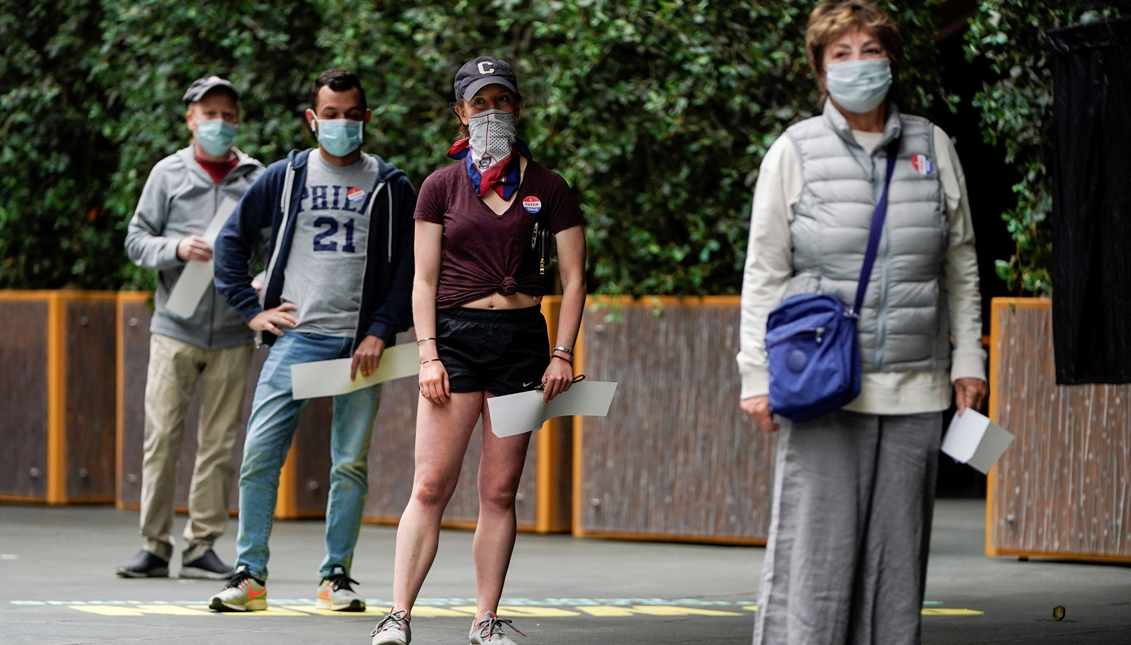
The power of 50+ voters in 2020 and what they mean to the future of the U.S.
2020 is set to be one of the most important elections in recent American history, and older voters play one of the biggest roles determining its outcome.
On Sept. 29, AL DÍA hosted a RoundTable discussion sponsored by Pennsylvania AARP all about voter engagement among the 50+ population and its role in determining the outcome of the 2020 election.
The panel, which included Uva Coles, founder and CEO of Inclusiva, Joanne Grossi, president of AARP Pennsylvania, Victor Negrón Jr., vice president of public affairs and marketing at Amerihealth Caritas, and Will Gonzalez, executive director of Ceiba, dove into the issues of 50+ voters this election cycle, their importance to its outcome, and some of the pitfalls around participation in 2020.
When it comes to issues, an AARP Pennsylvania study from Sept. 15 found that 50+ voters want their Medicare and social security, lower drug prices and protections for people in nursing homes.
Grossi added that no matter the political affiliation, these issues stood out at the top.
“It was resounding,” she said.
For Gonzalez, the issues are “personal.”
“Where’s my social security that I paid so many years for? Where’s my retirement benefits? How’s my government going to serve when I’m in a nursing home?” he said.
But beyond the issues, 50+ voters are also the age demographic that has the highest voter turnout and is the population that has been the deciding factor in past elections.
Gonzalez pins that high participation on the history many older voters have experienced involving voter suppression, both legally and illegally.
“The older citizen saw when it was almost illegal for us to vote,” he said.
They remember the fight it took to get the right to vote and have a voice, and that’s not taken lightly.
“We are the core voter,” said Negrón.
However, he also said that over the past decade, there’s been a reduction in voter turnout among the 50+ population. According to a Pew study of voter turnout following the 2016 presidential election, the rate of participation had dropped almost four points between 2008 and 2016 for individuals between the ages of 45 and 64.
Negrón said it doesn’t compare to the drops seen in other, younger age groups, but it’s still a warning of the apathy that is growing around the nation when it comes to the civic duty.
That apathy runs the risk of not only affecting the 50+ voter population, but often as mentors to younger voters, their overall participation is also further in question.
Coles called voting a “generational gift.” That means not only are 50+ voters voting for themselves, but the future they want for their children and young family members.
“This is how you have an opportunity to inform that future,” she said.
When it comes to Black and Latinx 50+ voters in 2020, Coles said to “remember the moment.”
While every presidential election year is often dubbed ‘the most important in our lifetime,’ 2020 has been particularly unforgiving with the COVID-19 pandemic and civil unrest.
It has affected everyone no matter their race, religion or political leaning, and many of the most popular overarching issues of the total 50+ population are only driven further home by the disproportionate effects on Black and Latinx populations.
“There are the same overarching issues,” said Coles.
Another issue that has surfaced thanks to 2020’s events is a number of worries about the actual process of voting before or on Nov. 3.
“If you’re a voter and you want your vote to count, you have to pay attention to the details,” said Negrón.
RELATED CONTENT
In addition to voting in person, which will be scaled back, voters can also vote by mail, and there will be both dropboxes for mail-in ballots and satellite offices offering voter registration, handling requests absentee ballots and allowing submission of ballots.
For mail-in voting, Gonzalez shared a video put together by Ceiba that broke down all the mechanics of the process.
If voting by mail in Pennsylvania, voters will receive two envelopes for their ballot. One is a “secret” envelope that one’s ballot goes in before being placed inside a larger one that is then signed by the voter.
The mail-in ballots must be filled out in blue or black ink, and the outer envelope does not need a postage stamp.
However, given all the hoops presented, a majority of 50+ voters will instead be voting in person on Nov. 3, according to AARP Pennsylvania data.
But even on that front, voting in 2020 will be very different. Much like former Attorney General Eric Holder told AL DÍA back on Sept. 15, the panelists stressed the importance of having a plan when going to vote this Election Day.
As part of the plan, voters should not wait and vote as early as possible, while also planning to wait once they arrive at the polling place.
That is especially true for voters of color, where faulty equipment and long waits are often used as tactics of voter suppression, and could be used amid COVID-19, where tensions are at an all-time high.
“Voter suppression is real,” said Coles. “Voter suppression in this moment has been amplified.”
To help develop a plan, much like it is the elder population’s job to introduce young people to the process of democracy, it is up to young people to make sure the elder population follows through with the plan.
It harkens back to her previously mentioned “multi-generational” approach to voting.
“We have a responsibility and we have to have a plan along with that responsibility,” she said.
Pennsylvania’s voter registration deadline is Oct. 19.
For more information on voting, go to votespa.com or call 1-877-VOTESPA.











LEAVE A COMMENT: